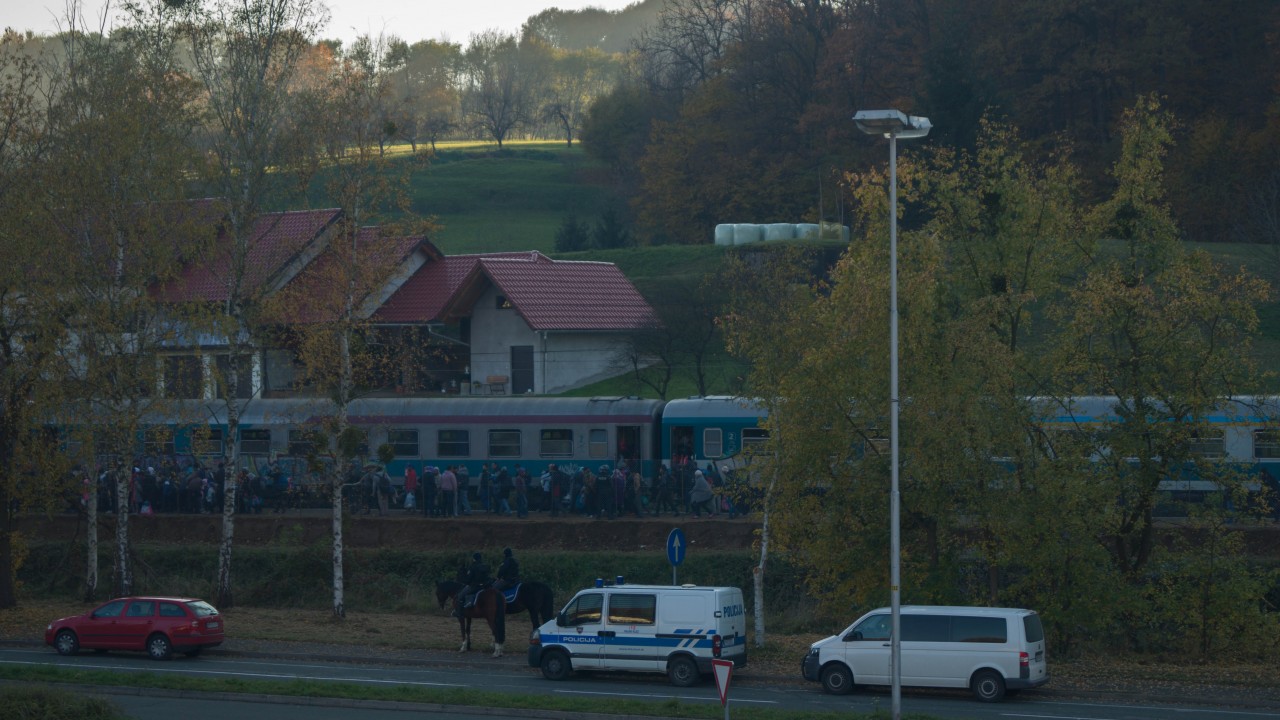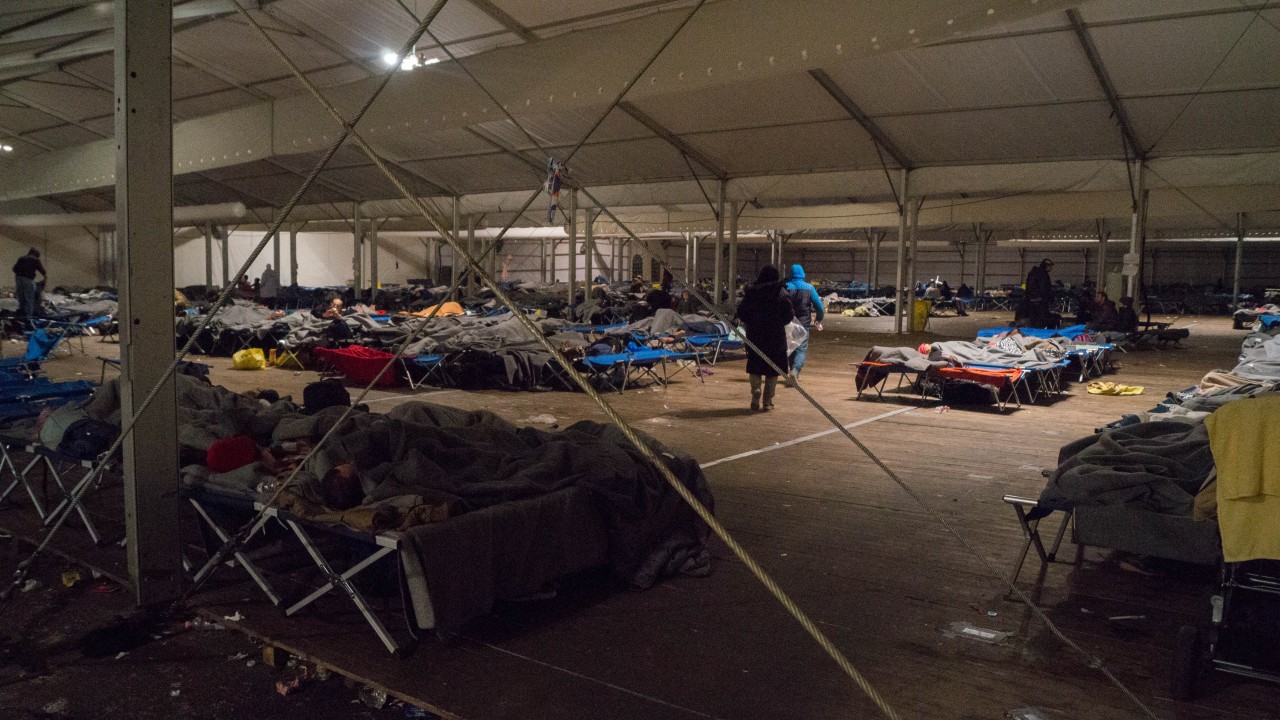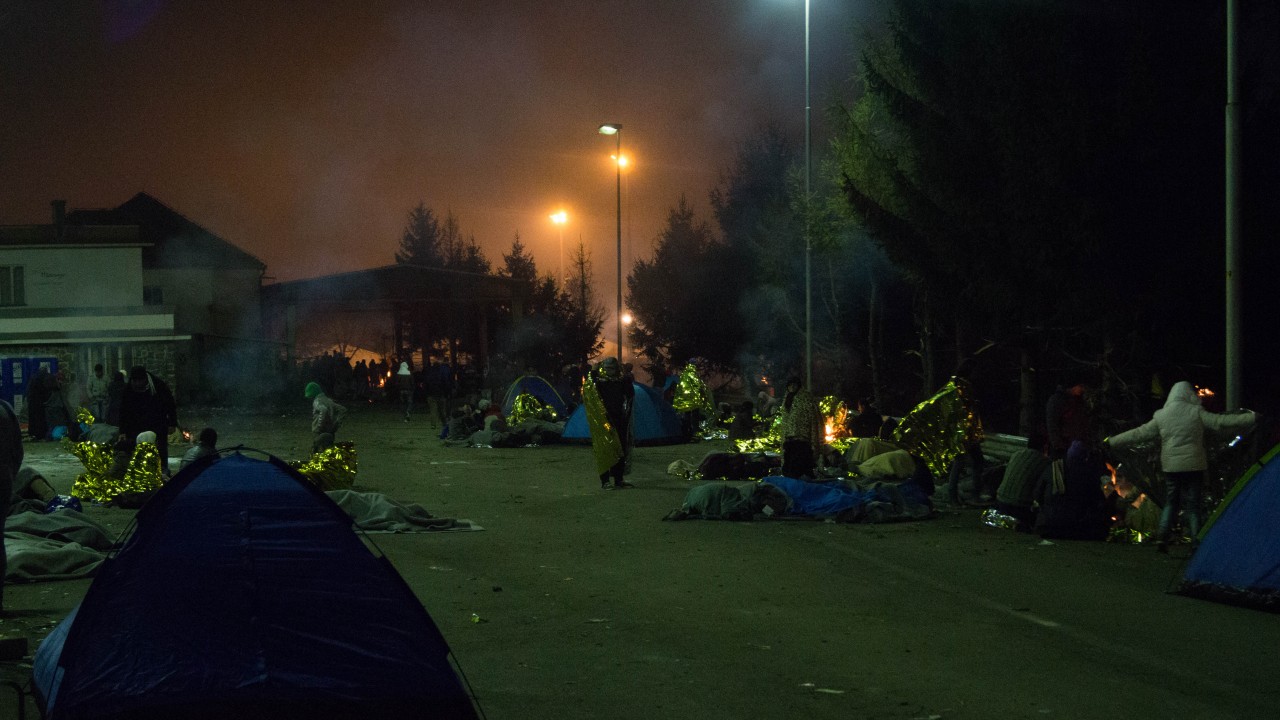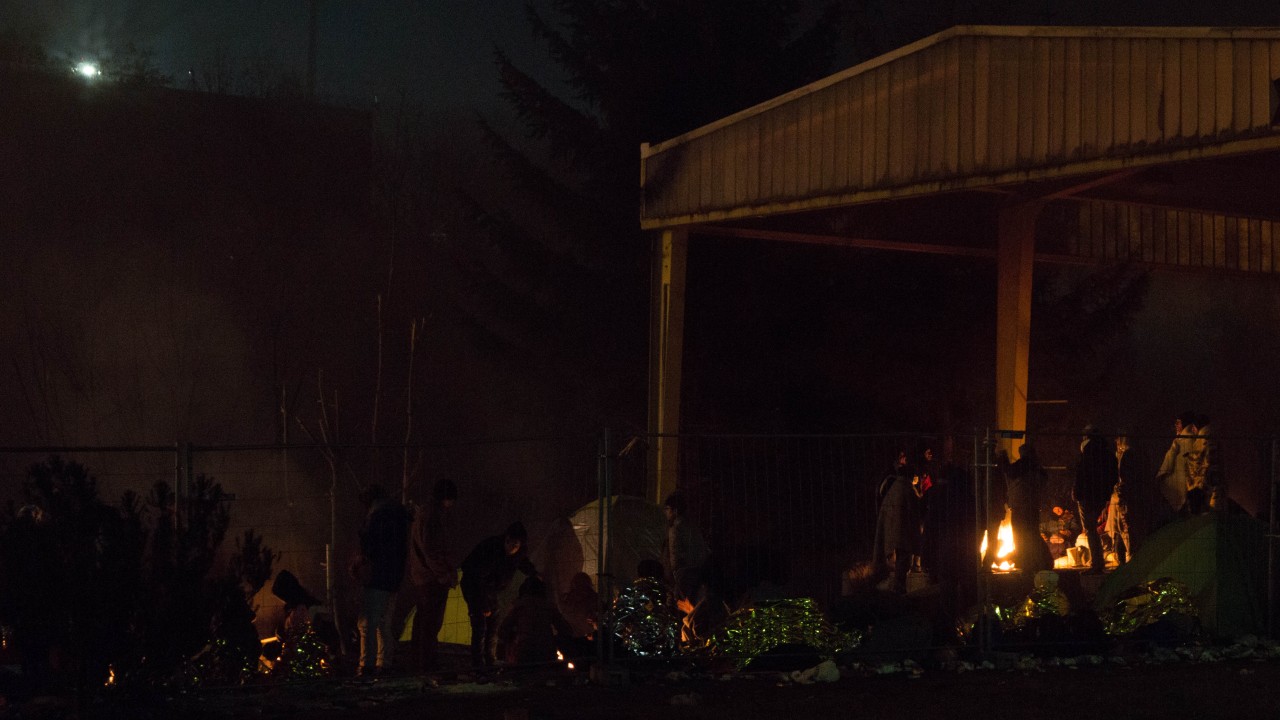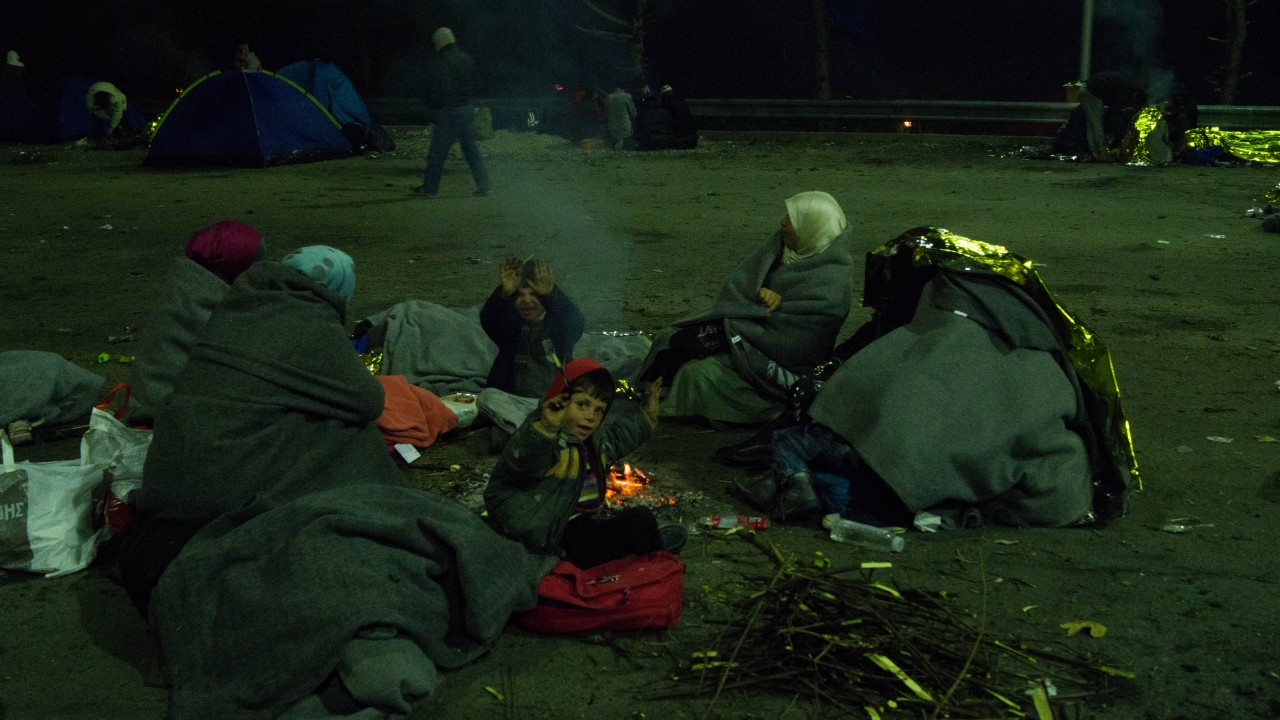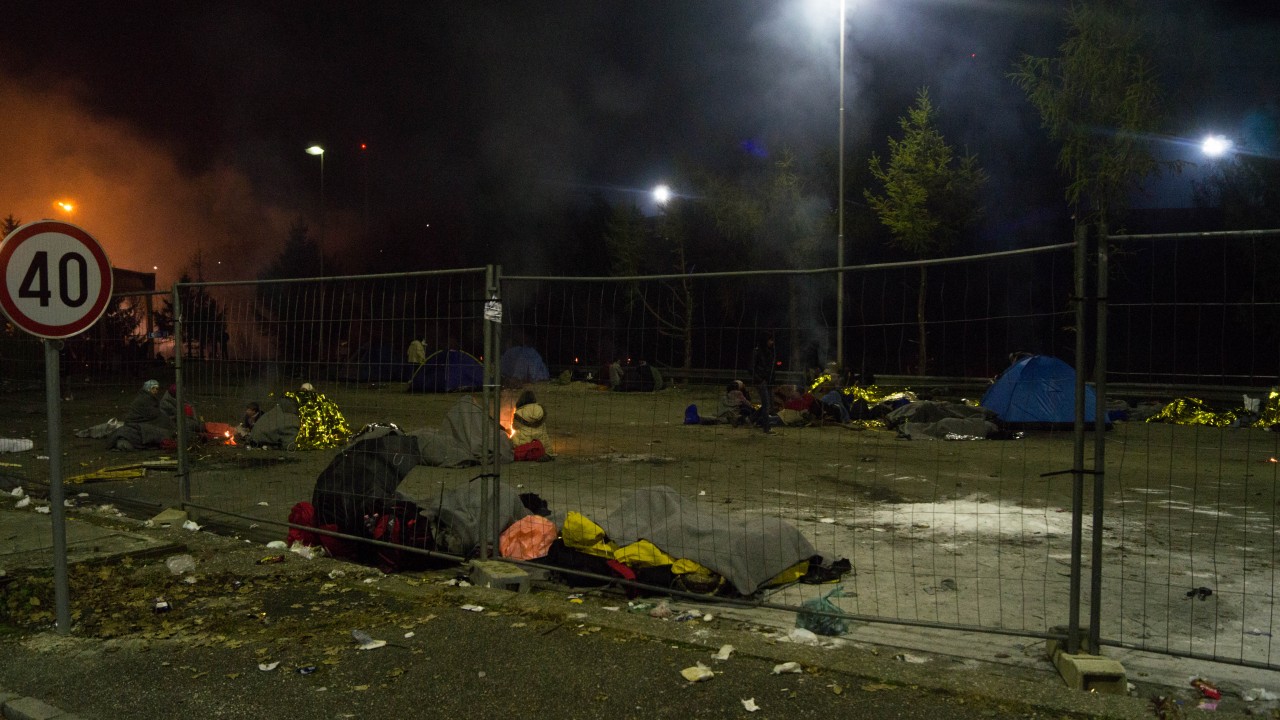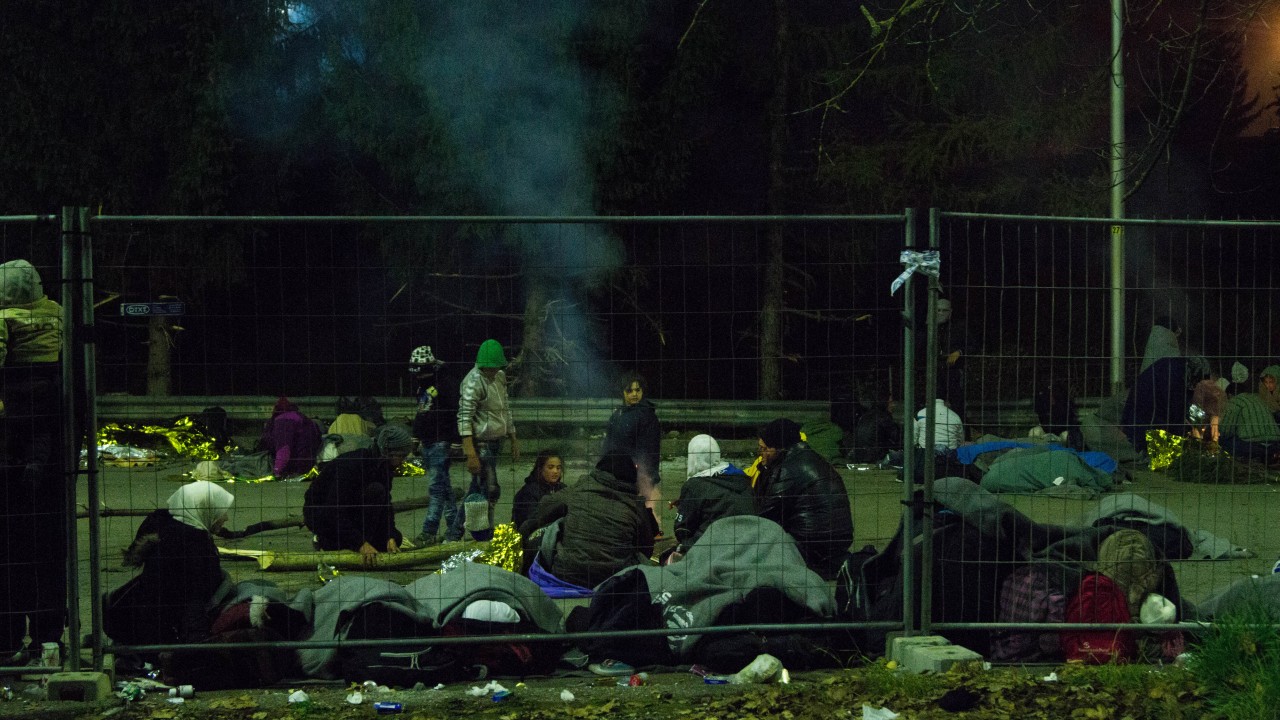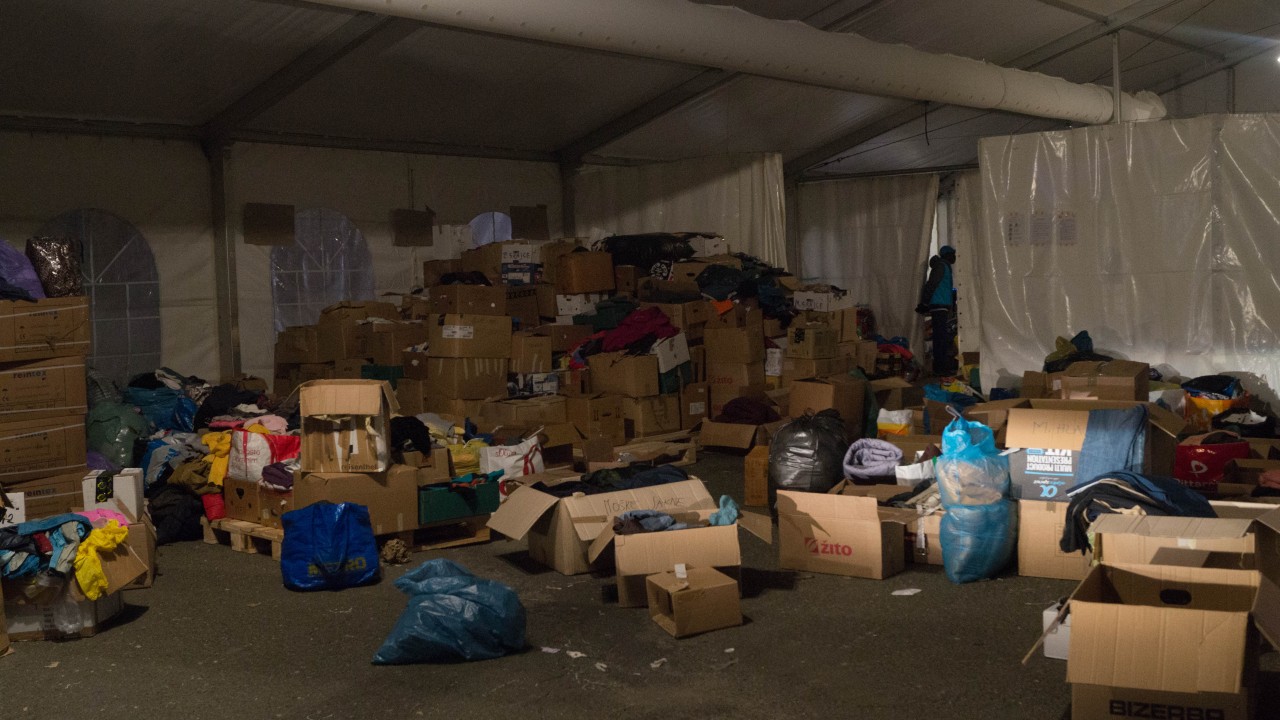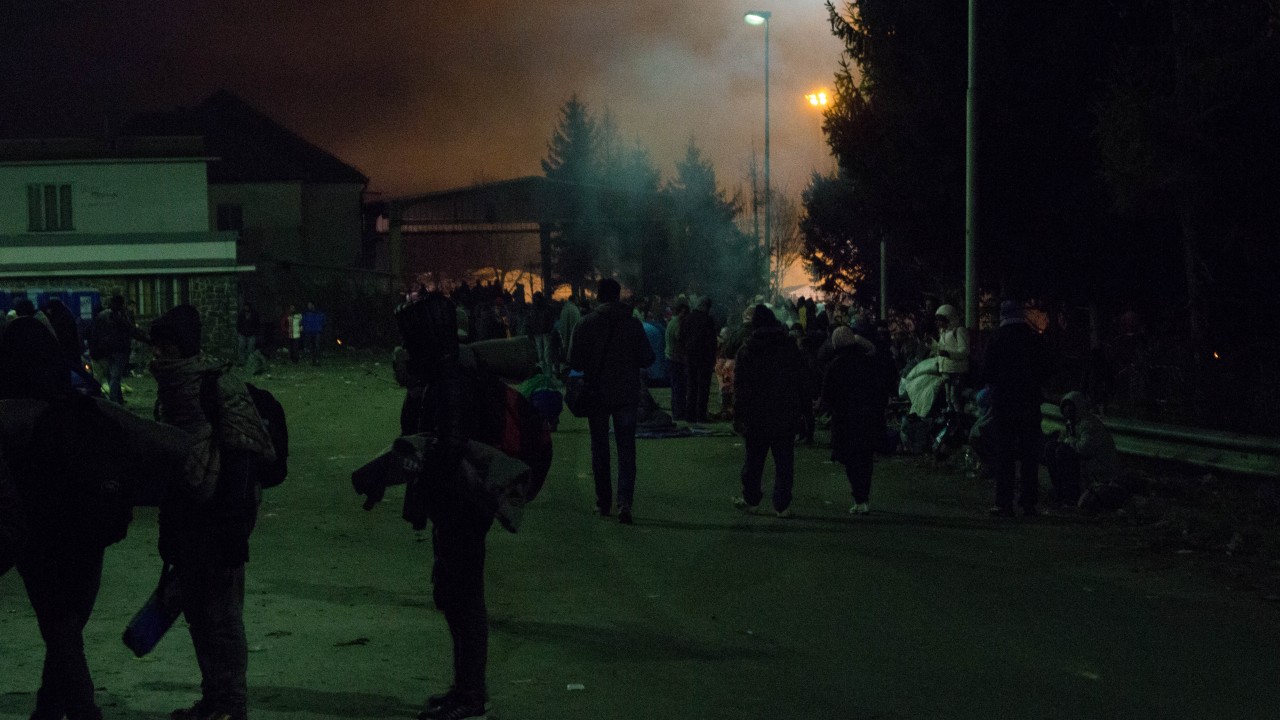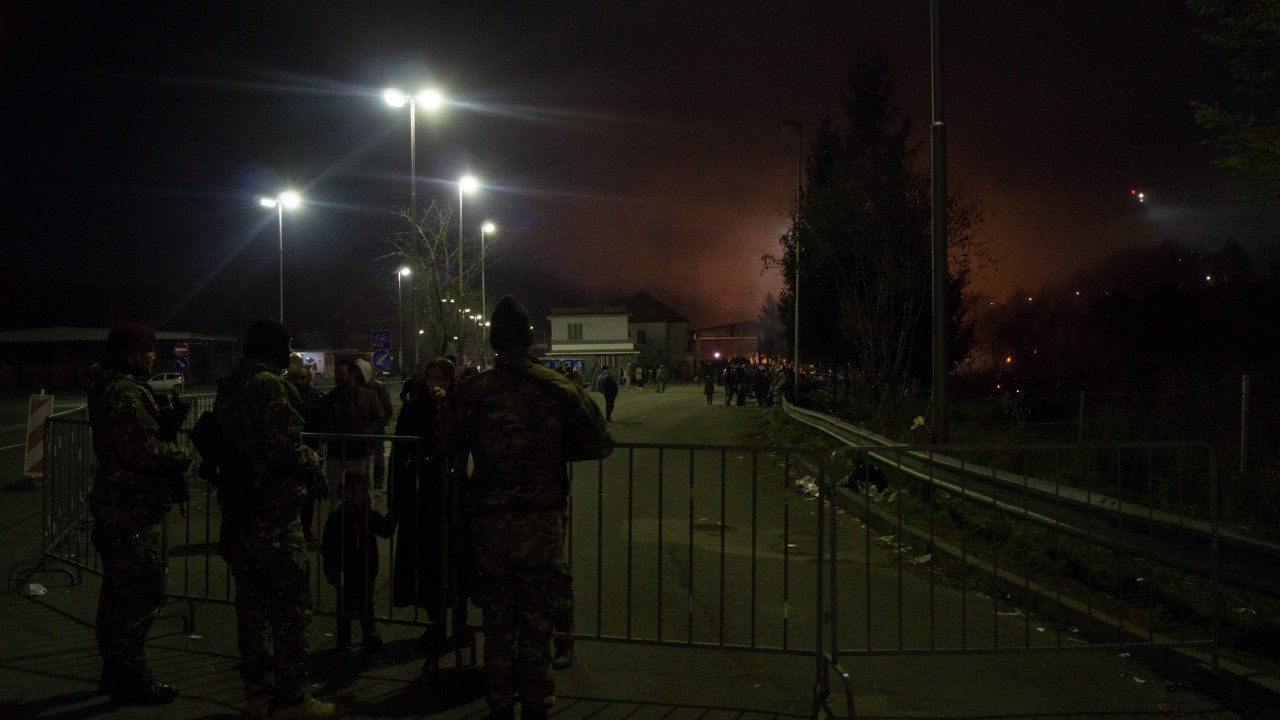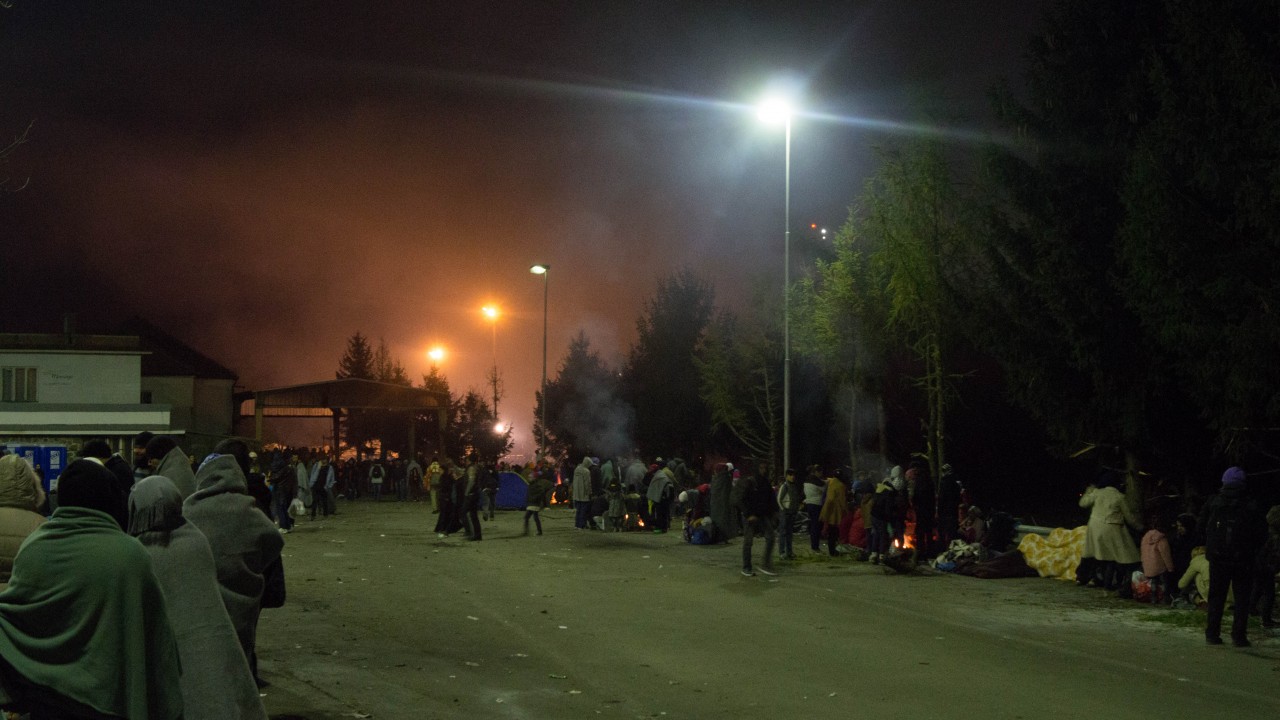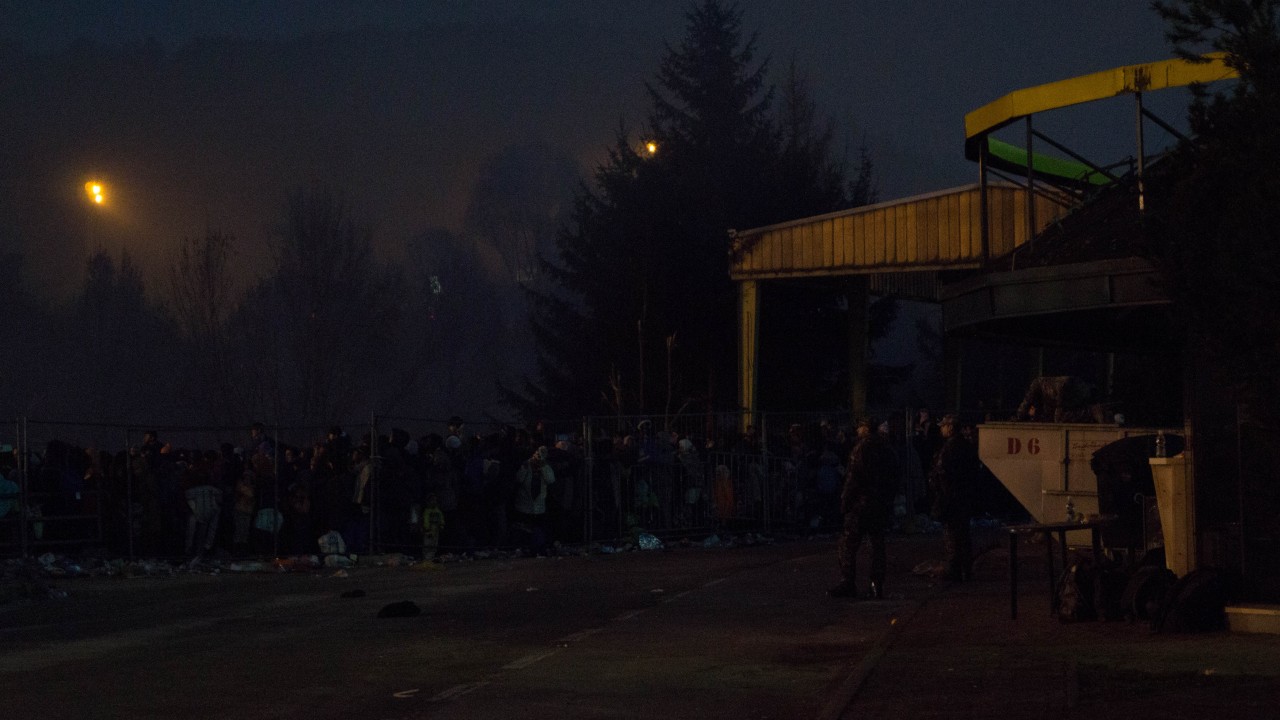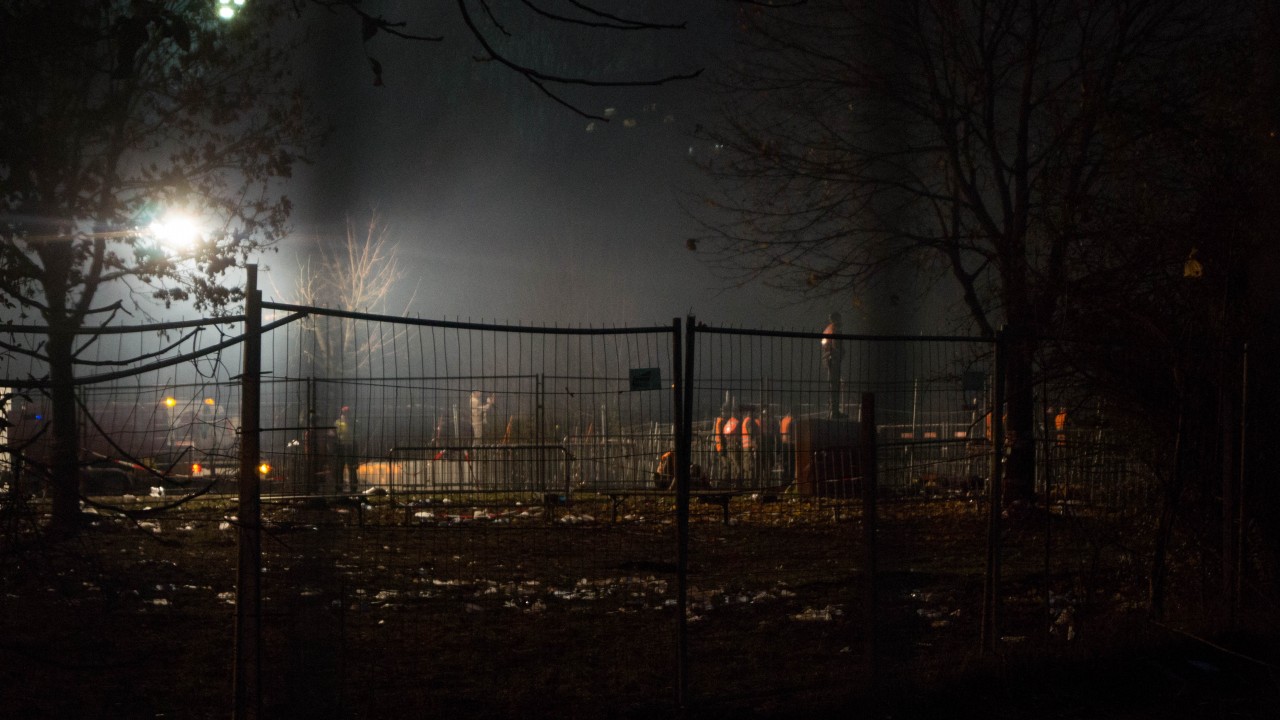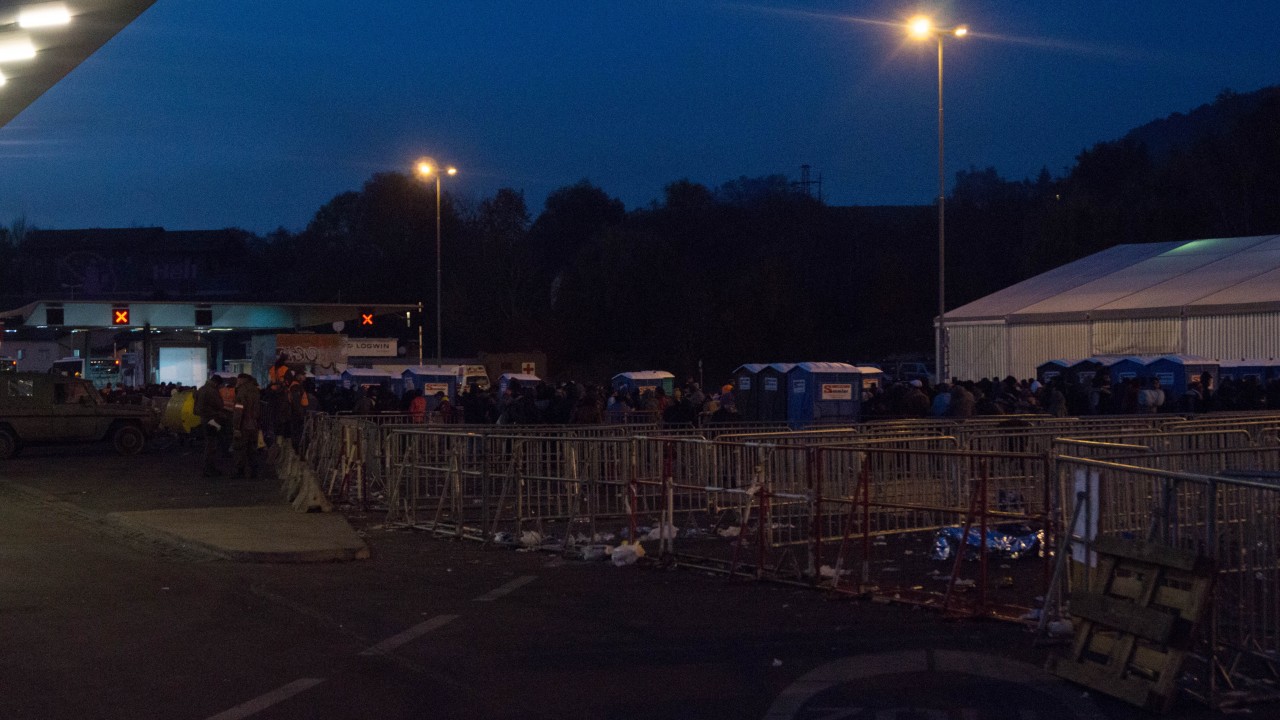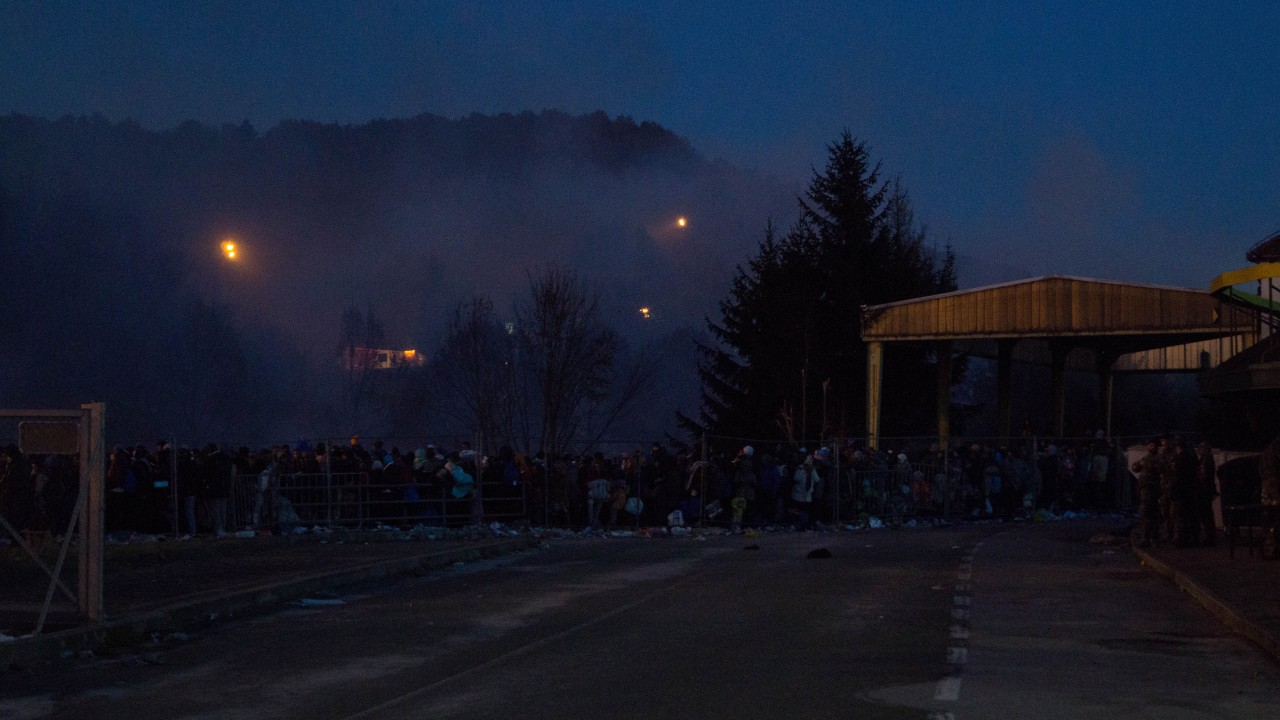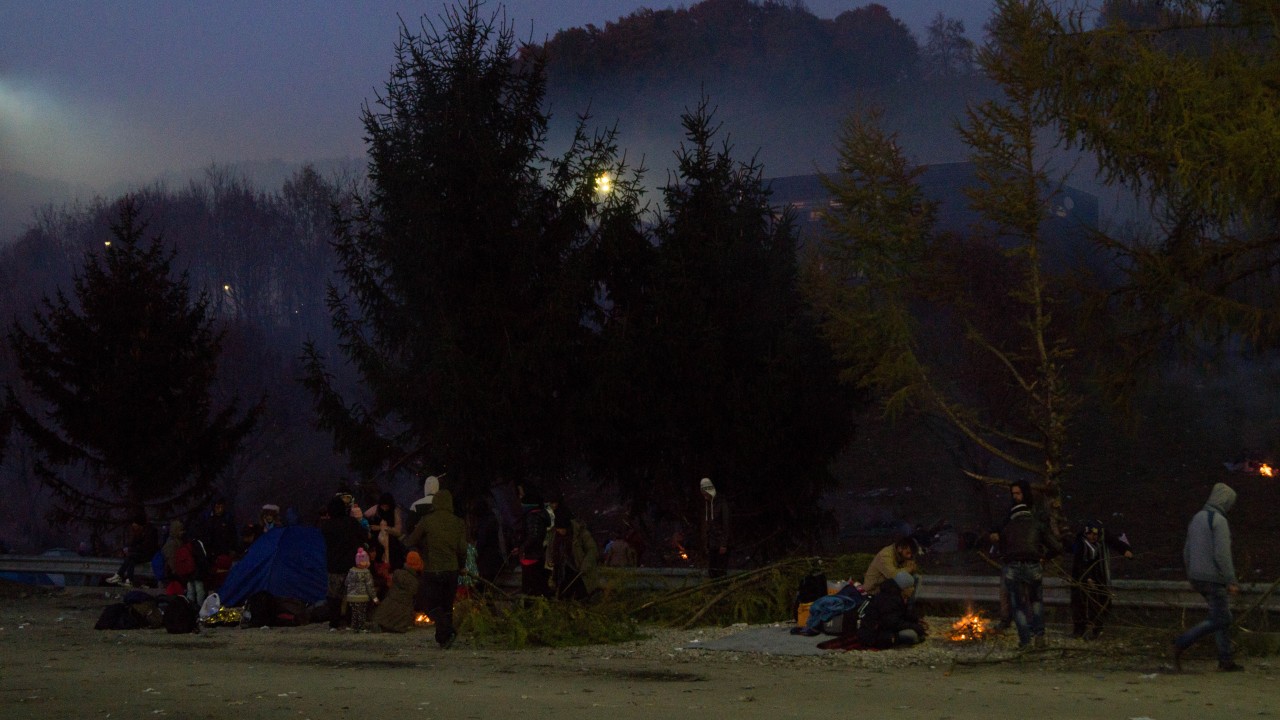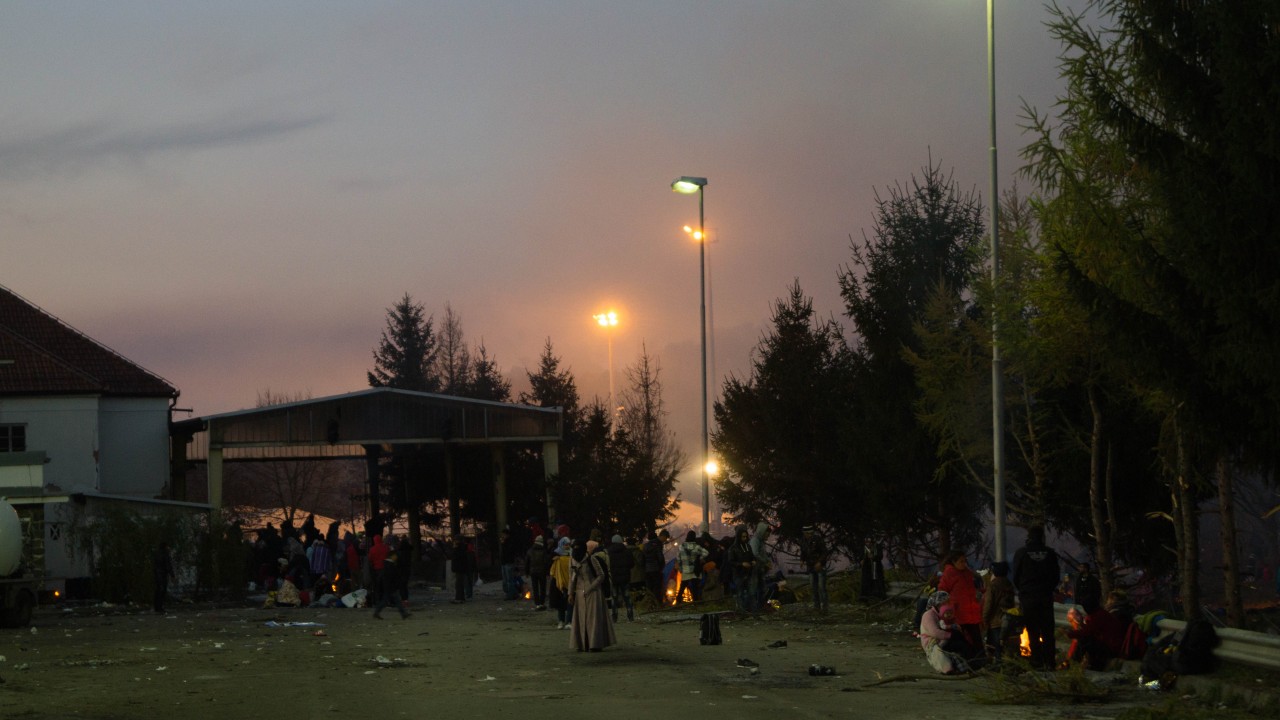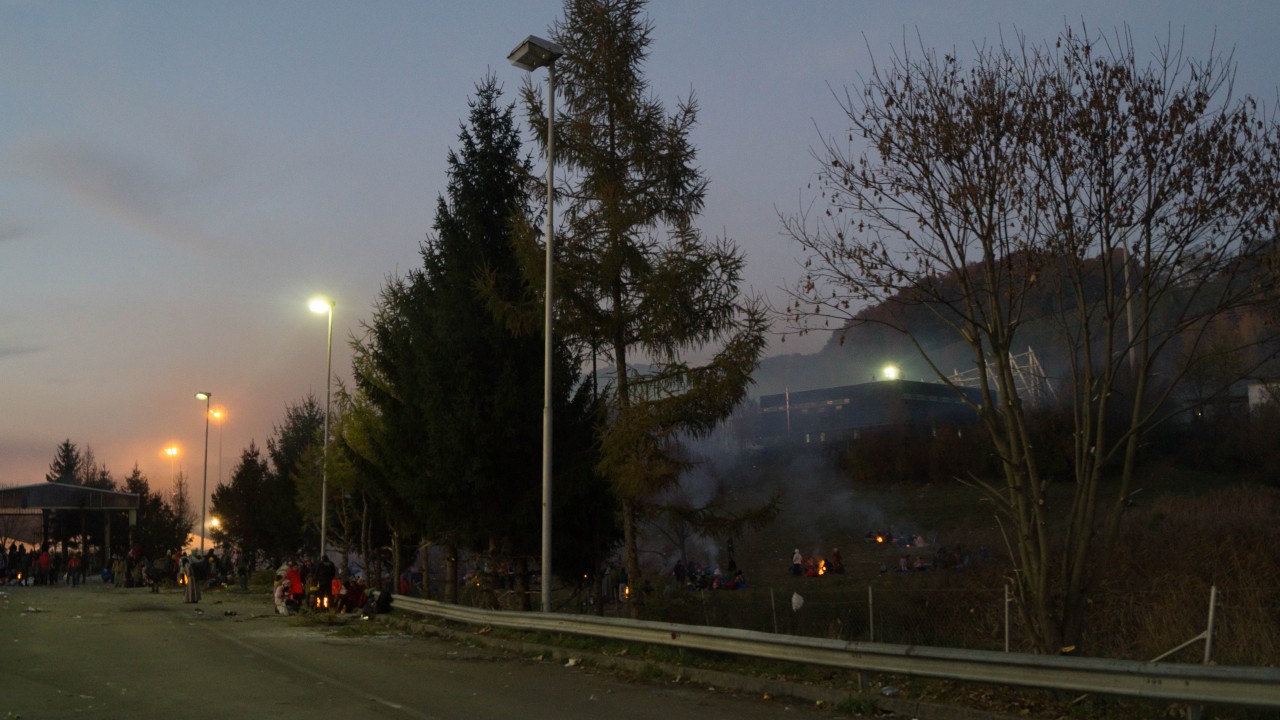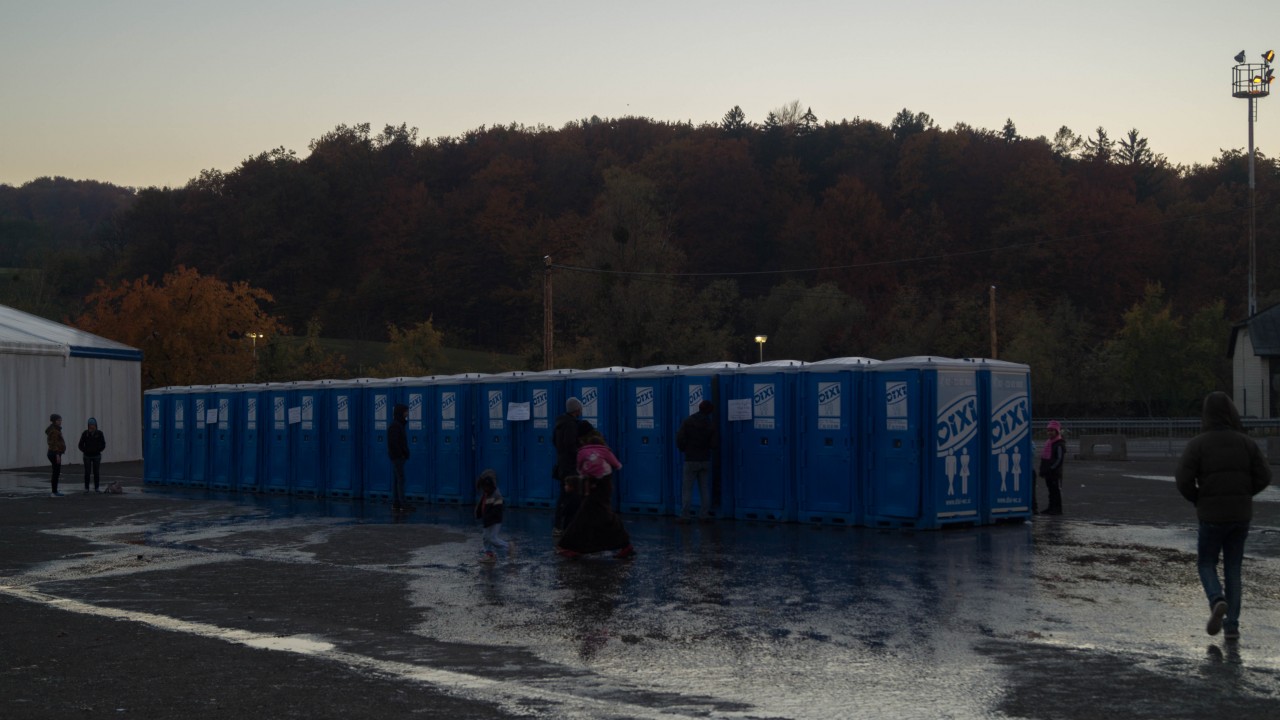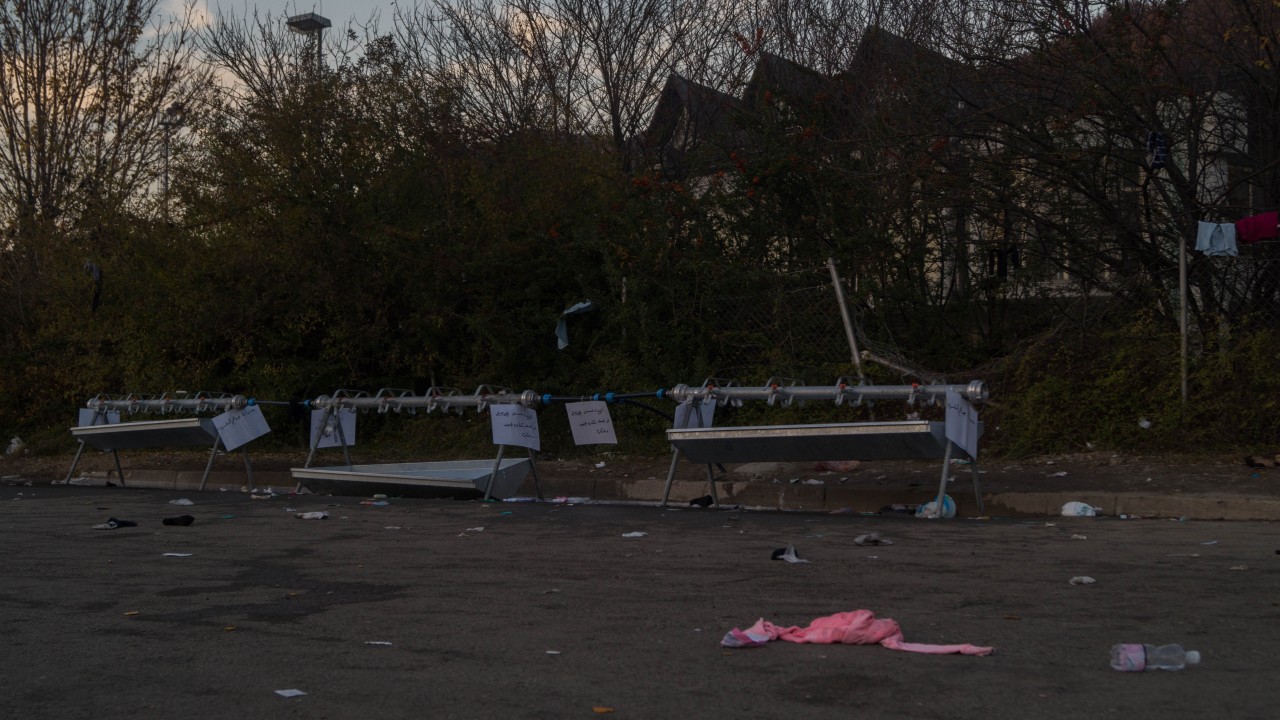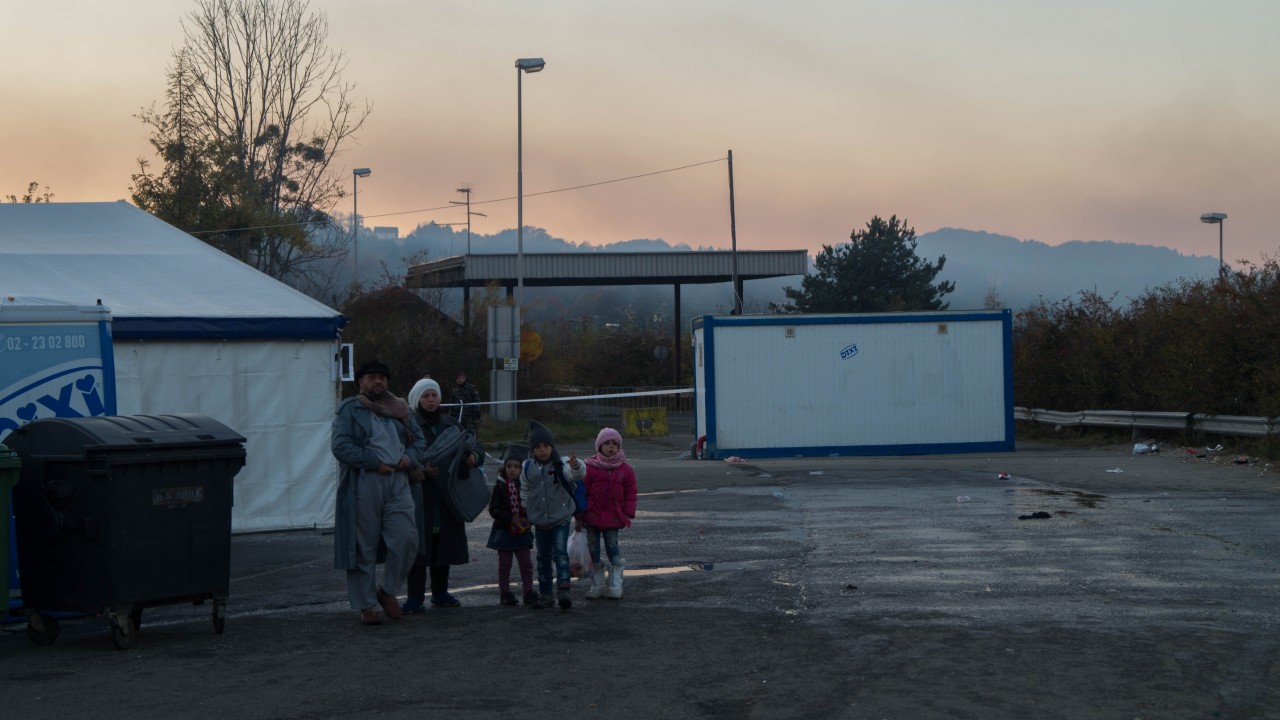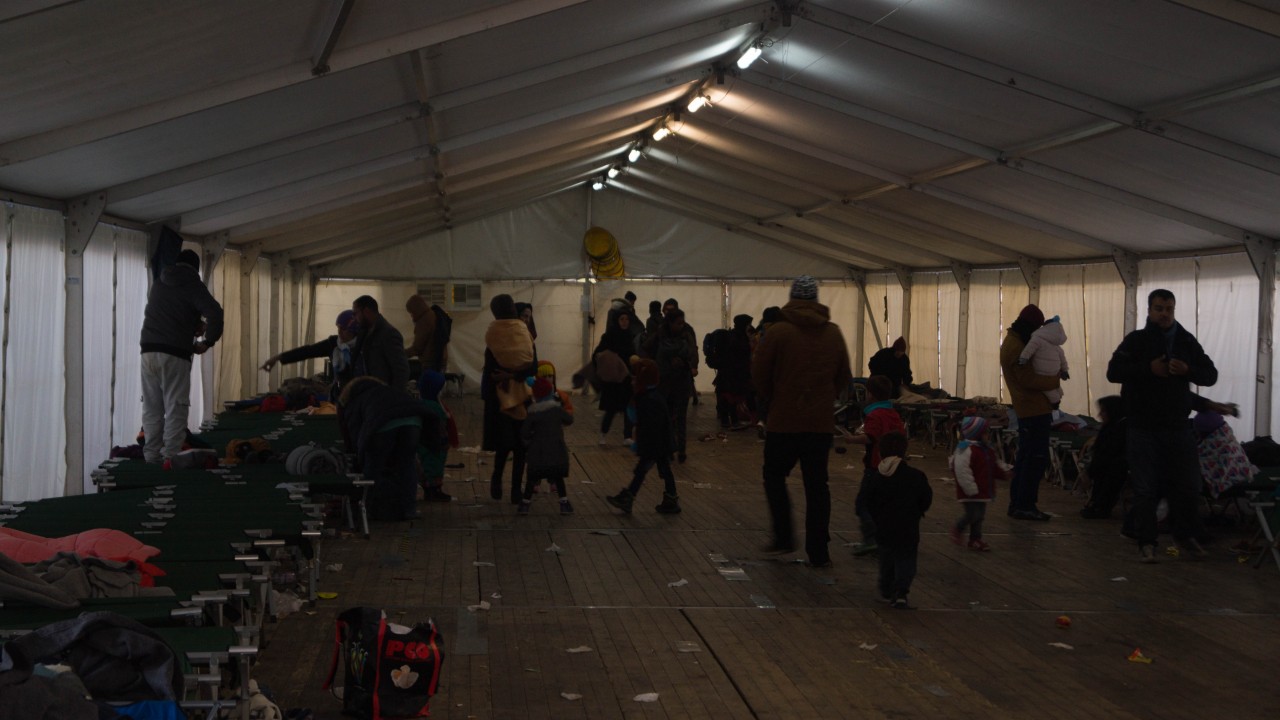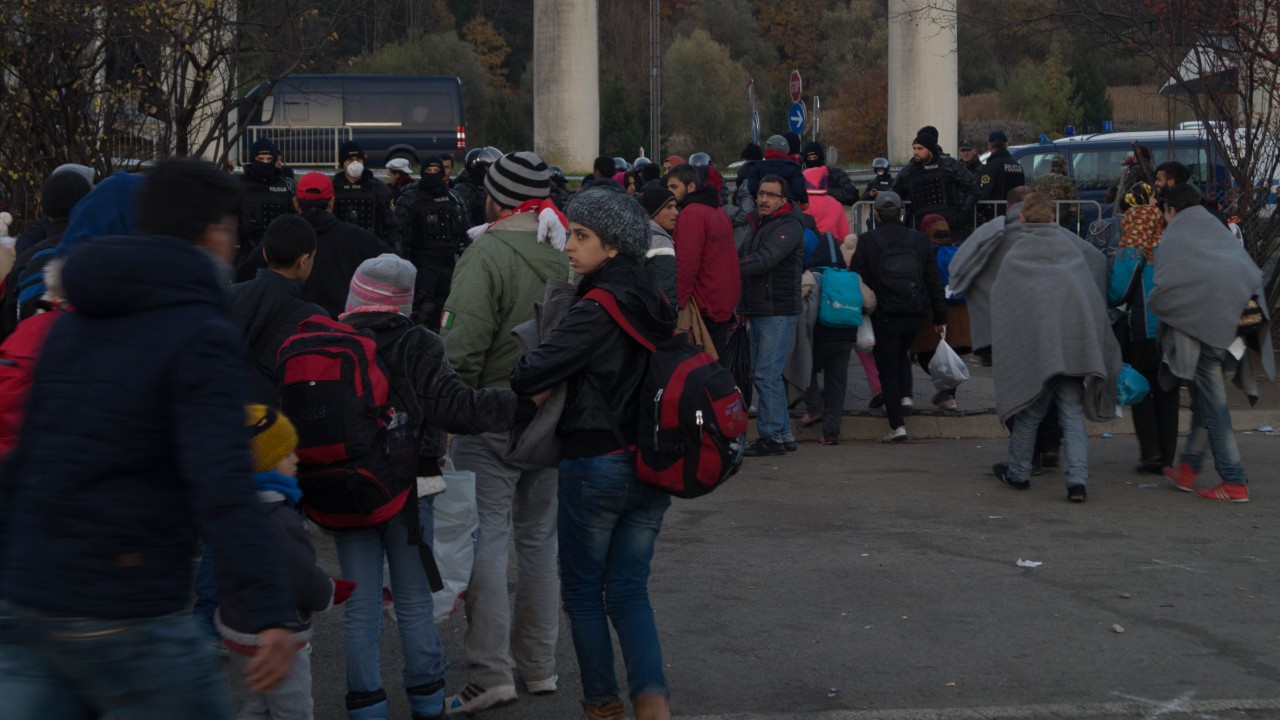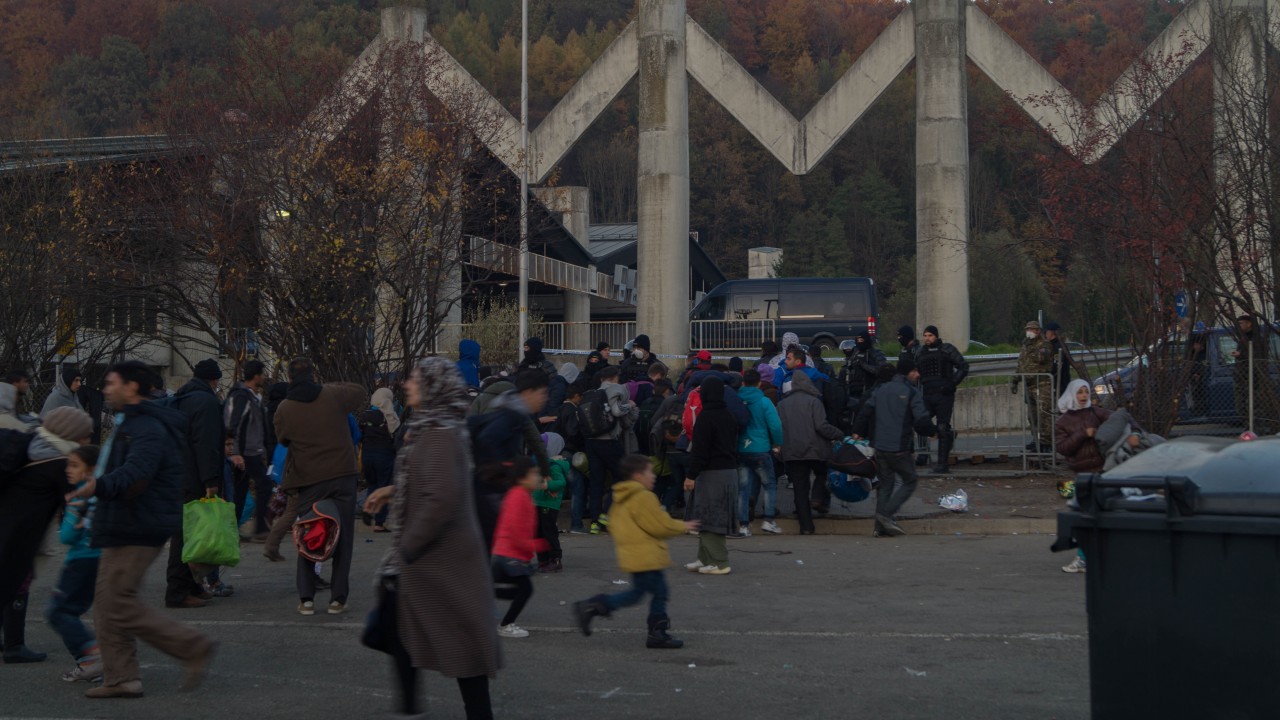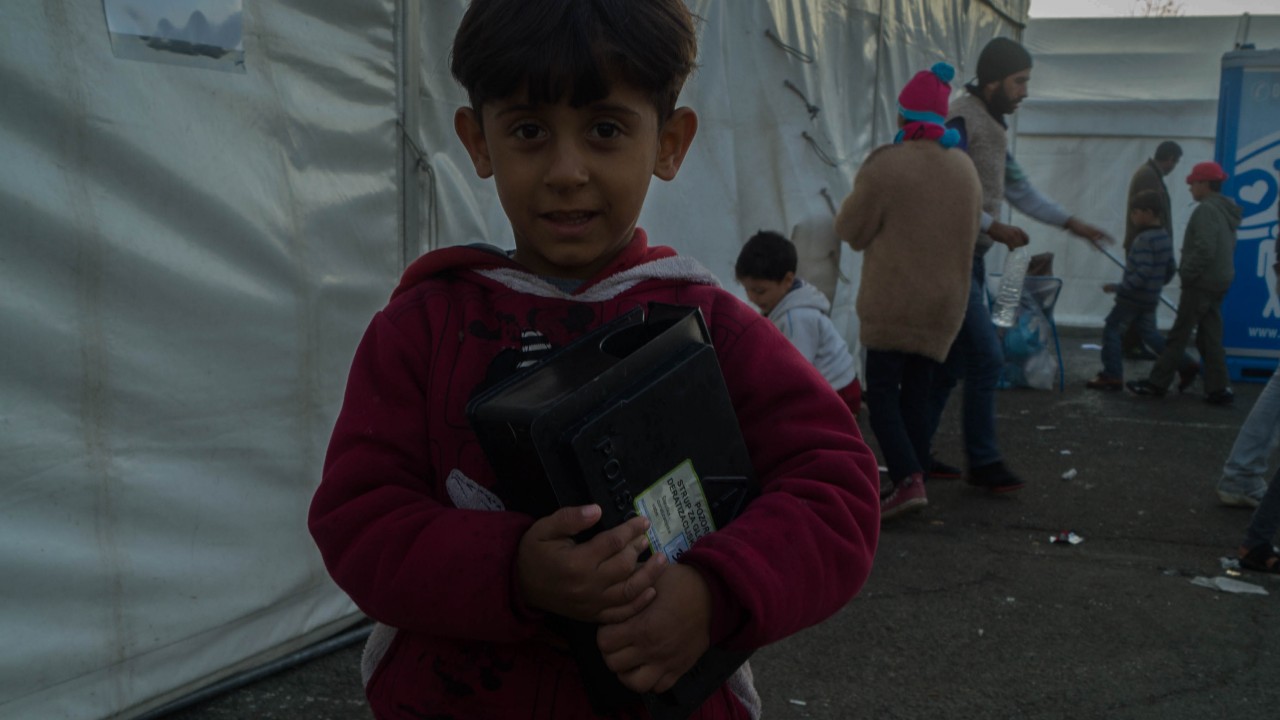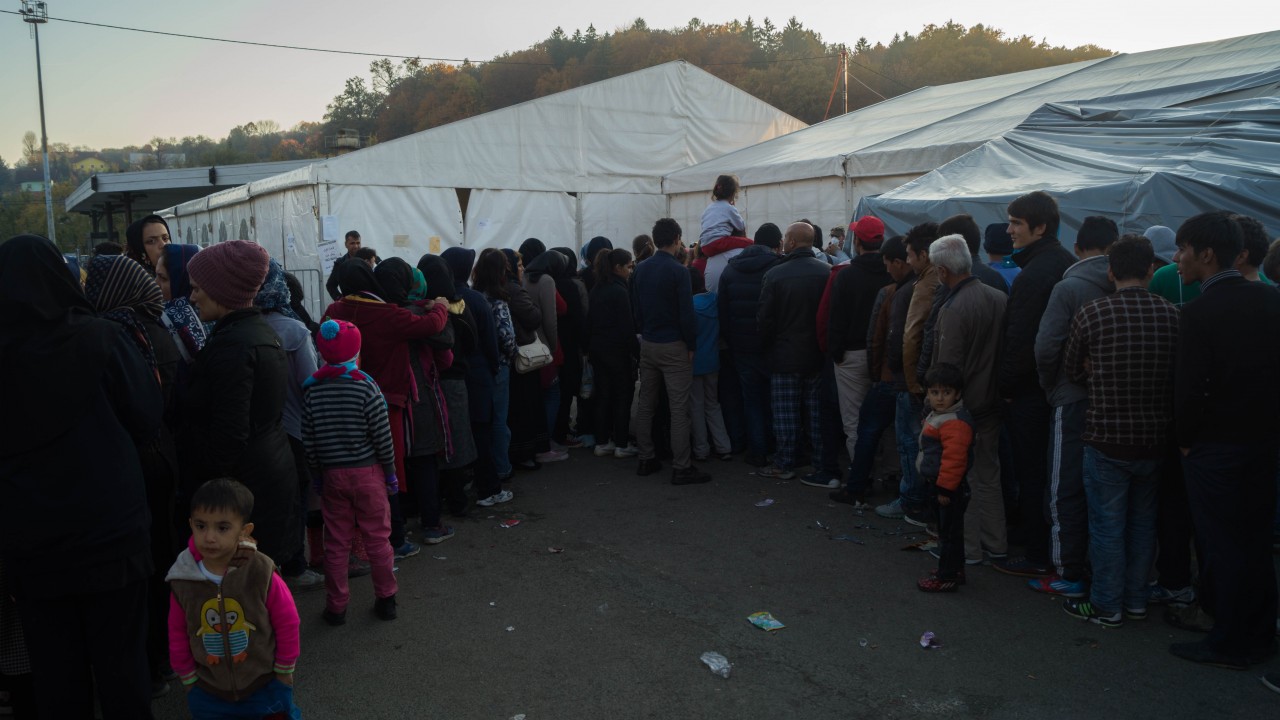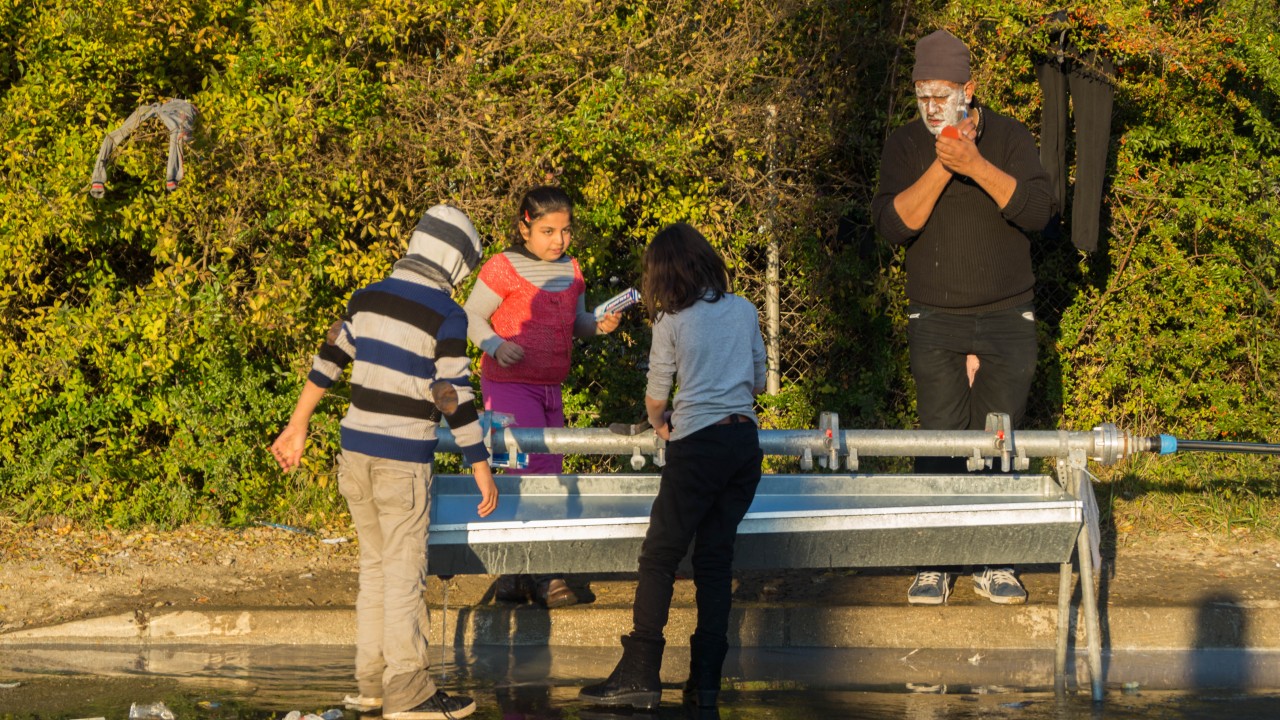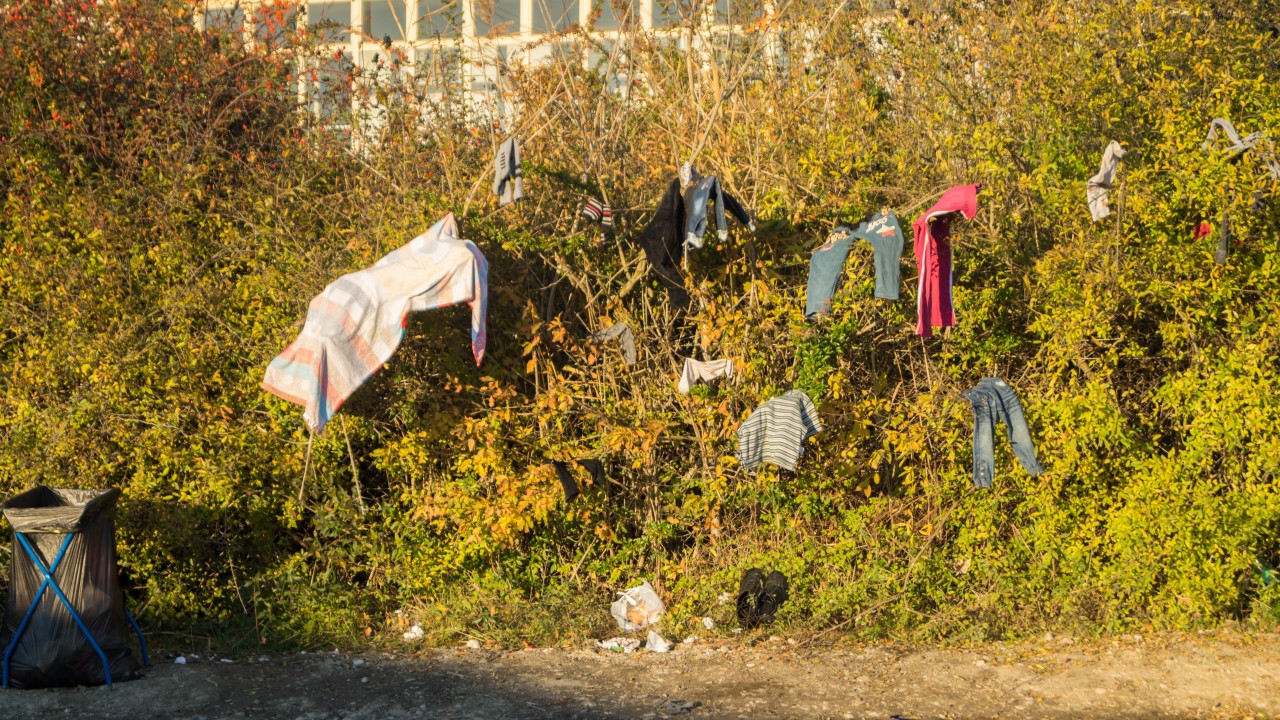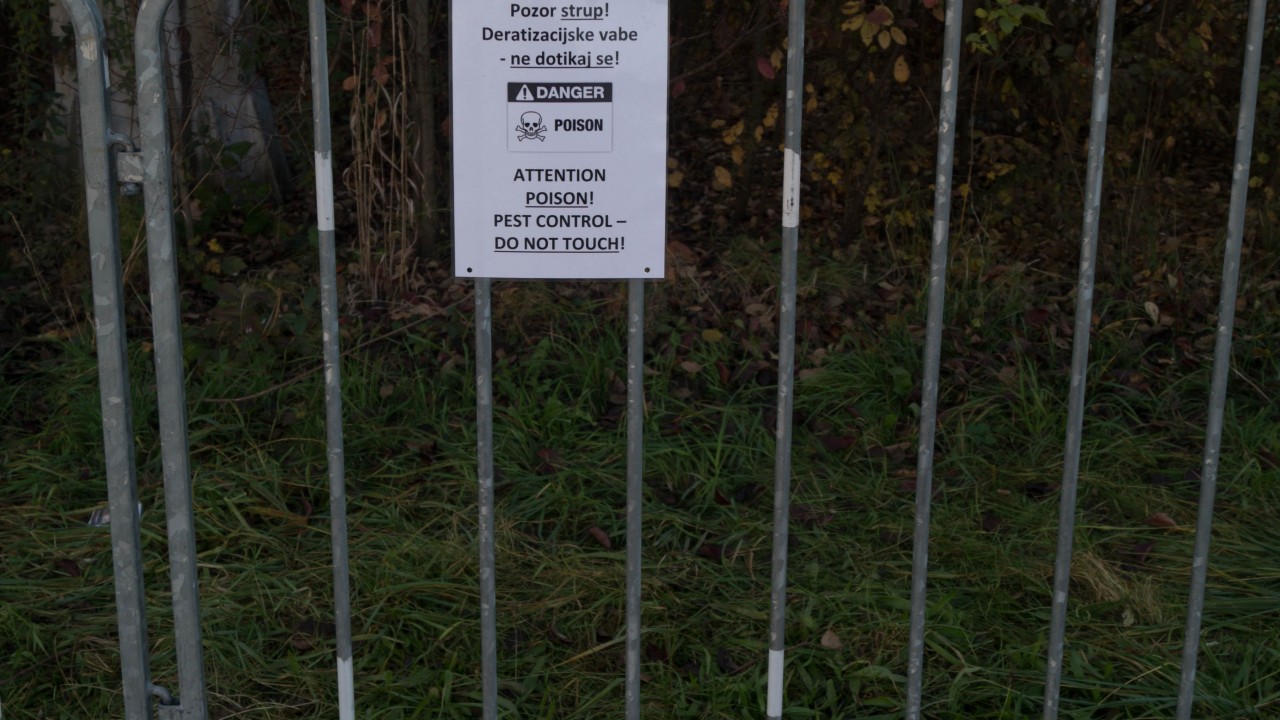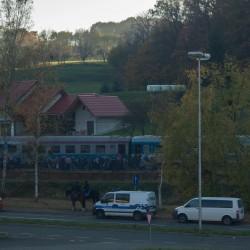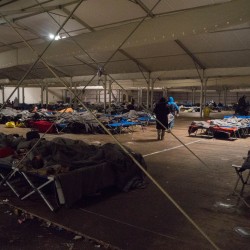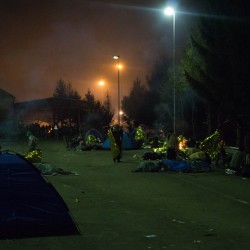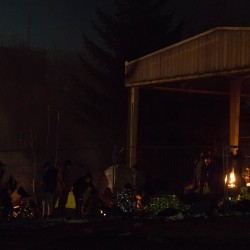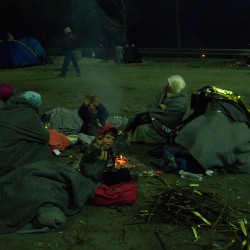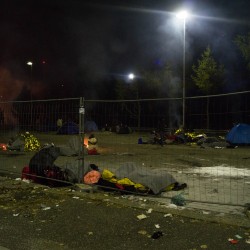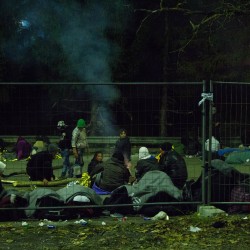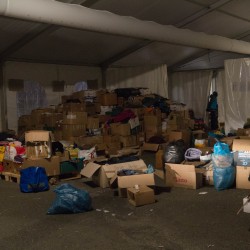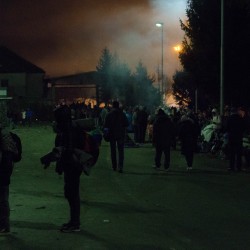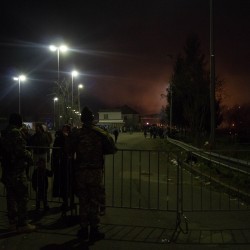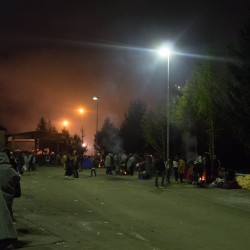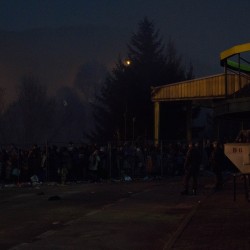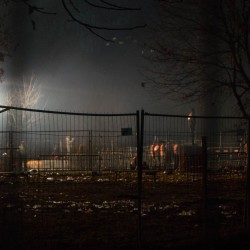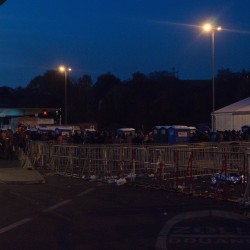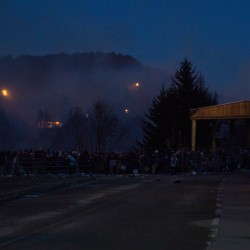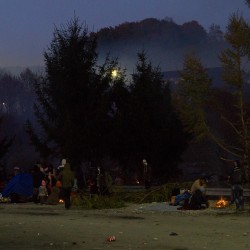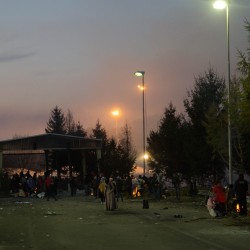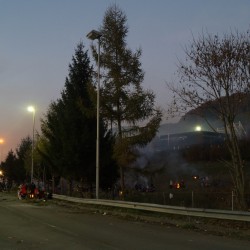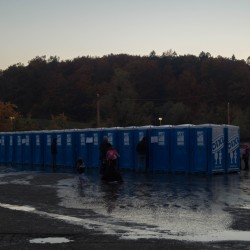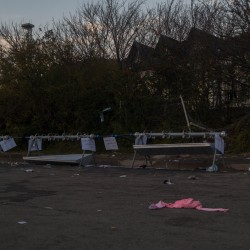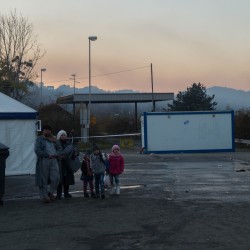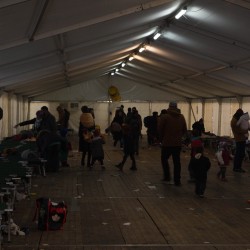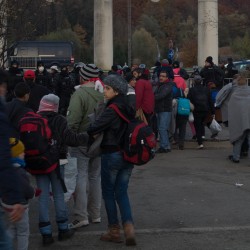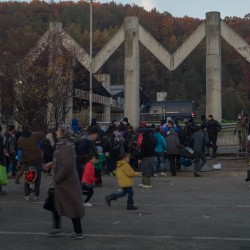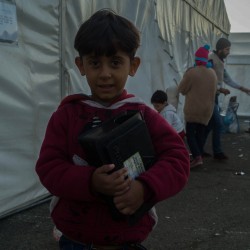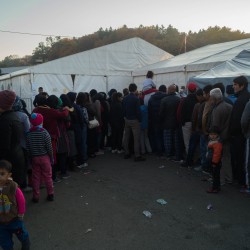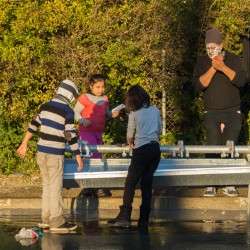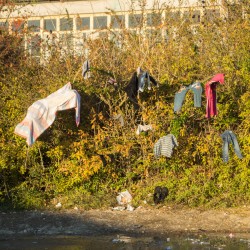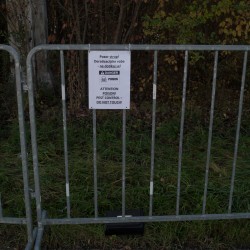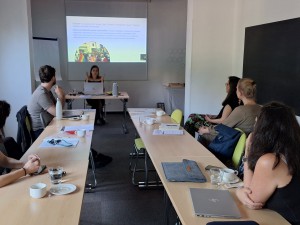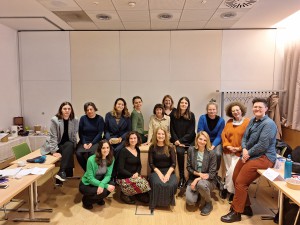Report from Šentilj
5. 11. 2015 | Human Rights and Minorities, Politics
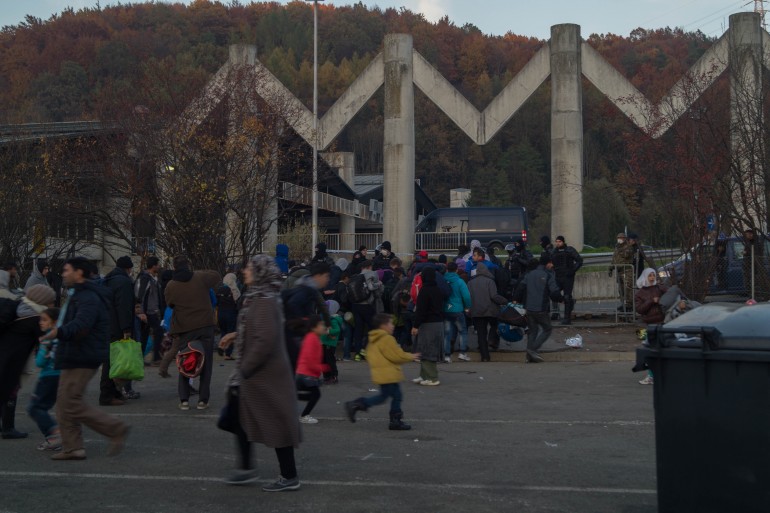
On Monday 2nd November 2015 we were in Šentilj.
General Situation:
On Monday 02/11/2015, about 5000 refugees crossed the border to Austria in Šentilj. In the afternoon and evening, the Austrian police was letting the refugees across the border very slowly. When we left the camp at 10 PM, it was already full and there were no more folding beds available in heated tents, many people were already sleeping on the floor inside the tents. In the evening we also heard there were no more blankets available. There were about 3000 people in the camp and still around 1000 people in “no man’s land” between the two countries. We heard from the police that one more train and 20 buses were expected to arrive during the night. This “no man’s land” between the two borders seems to be the main problem in Šentilj. When the refugees are sent to the Austrian border, often they have to wait for hours outside, sometimes also at night, before crossing to Austria. As none of both countries want to take the responsibility of this area, refugees remain there behind the fence without access to water, food, clothes and blankets, and without the possibility to go back to the camp if they wish so. The only exception we saw was in case someone needed a doctor, in this case they were escorted back to the camp, and some were also offered to stay in the camp if they wanted to. Mostly they didn’t because their relatives or friends were at the border and they didn’t want to stay separated.
The camp in Šentilj is divided in two parts, the lower and the upper one. The lower part is composed of various medium size heated tents, one canteen tent and one tent for clothes’ distribution, outside there are toilets, one shower and water sinks or valves. The upper part is composed of one huge heated tent, one canteen tent and one tent for clothes’ distribution, outside there are toilets, 3 showers and water sinks or valves. The food distribution was quite effective; in the evening around 19h the refugees receive a hot meal and could sit inside a heated tent to eat. The problem we observed was that some groups of refugees arrived to the camp in the period when food is not distributed and were sent further to the border before food was distributed in the evening. These groups of people did not receive anything, and were then forced to wait in “no man’s land”, where nothing was available, for several hours. The clothes distribution inside the camp was also effective, however some items were lacking (especially winter shoes, jackets, gloves, hats etc.). The warehouse seemed to be full (and this is also what all humanitarian organizations were announcing lately, that their warehouses are full and they cannot accept new donations). It would be useful to do a thorough selection in warehouses in order to make free space for new donations that people are offering. In general, the atmosphere inside the camp was calm, with no major tensions or problems.
Observations:
- No man’s land: In the afternoon and evening many people were waiting between Slovenian and Austrian border. Some groups of refugees arrived to the camp and were soon after that sent to the no man’s land. Only few people in this short time were informed where they can get clothes or blankets, only very few had time to visit a doctor if they needed help, while most people left the camp without having time (or being informed) to ask for clothes, food and water (as they arrived in the period when food was not distributed, they didn’t get anything), or to visit the doctor. Since around 2000 people were waiting at the Austrian border around 4pm, and around 7 or 8 pm there were still around 1500, it was obvious many of them will be waiting outside in the cold also at night. At 10pm around 1000 people were still waiting there. They didn’t have the possibility to come back to the camp if they wanted so, and remained outside without appropriate clothes, water and food. Only in case or emergencies if someone needed to see a doctor, they were escorted back to the camp. Humanitarian organizations present inside the camp were informed about the situation in “no man’s land” and asked to take food and water there, but they did not (or could not?) go to this area to help the refugees. The night was really cold (around 2°) and despite the fires that refugees were lighting, they had little option to warm up.
- Opening the camp and directing refugees towards the border: Another problem we observed was when the police opened the fence and directed people to go to the border. They just opened the fences and screamed “go” and “move” to the refugees. At first people didn’t even understand what was happening, since not long ago they just arrived to the camp and were told they can settle there, wait for food etc., and shortly after that they were told to “go”. This also created panic among people, they were running, picked up what they had or even left many things behind in a hurry, and ran towards the border. They were not informed that they will probably have to spend a long time at the border (in “no man’s land”), maybe even at night, so that they could prepare for that and take (enough) clothes, water and food, especially milk for babies, with them. Another problem we saw was that when the police simply opened the fence and everyone began to run towards the border, young men or adults travelling alone were the fastest and were in front of the families to cross the border; families remained behind as they couldn’t run fast and then had to wait the longest to cross the border. As being the most vulnerable, families (especially those with small children and babies) and pregnant women and their families should be given the priority and have the chance to cross the border first.
- Medical assistance: There is just one medical tent in the lower part of the camp. Refugees that are brought to the upper part of the camp can visit the doctor in the other part but they have to wait for a volunteer to escort them to the other part (and back). It takes a long time and especially in the evening there were not many volunteers there anymore. Another problematic aspect of this is potential separations of families when someone went to see the doctor and in the meantime the police directs people to go towards the border.
- Army: In general, there were more soldiers than police in Šentilj. They seemed calmer than the police and more helpful to the refugees.
- Pest control (rat poison): We have seen many pest control boxes (bates for rats and mice) around the camp in Šentilj. However, we have seen some children inside the camp playing with one of these pest control boxes. We have not seen the poison, the box was empty when a volunteer took it away from the kids, but this could have severe consequences. These pest control boxes must be out of reach of everyone, especially children. Warning signs, which were written only in Slovenian and English language so most people cannot understand them, said “danger”, “poison” and “do not touch”.
- Women’s area: There should be a separate area for women for breastfeeding and changing clothes. At least minimal level of intimacy should be provided inside the camp.
- Insufficient capacities: There were more people in the camp than there are folding beds available. Therefore many people had to sleep on the floor inside the tents only on blankets (at one point in the evening there were no more blankets to be distributed either).
- Restoring Families Link: The Red Cross RFL tent closed at 7PM, posing a problem for refugees who are arriving during the evening and the night and are searching for their family members. The system is also not very effective as often the answer was that the refugees should continue their way to Austria and then search for their family members there.
- Volunteers: For the persons who are willing to volunteer, you can try with the Slovenian Philanthropy. The best way to apply as a volunteer is to go on their website (http://www.filantropija.org/en/) and to fill in the form. Anyway, if you are close by, you can always go to there and ask directly the Civil protection or the coordinator of the volunteers. On this day, some people were included in the team of volunteers in this way. Refugees that get stuck in “no man’s land” mostly don’t have access to water and food, but help is needed there. Try to find out how you could help in that area.
What is needed?
On this day, in the camp they were refusing additional clothes as the warehouses were full. It is better to contact them before bringing anything and ask what is most needed. For information, you can contact this number: 0038631786028. Blankets would probably be appreciated as there were no more to be distributed that evening.

